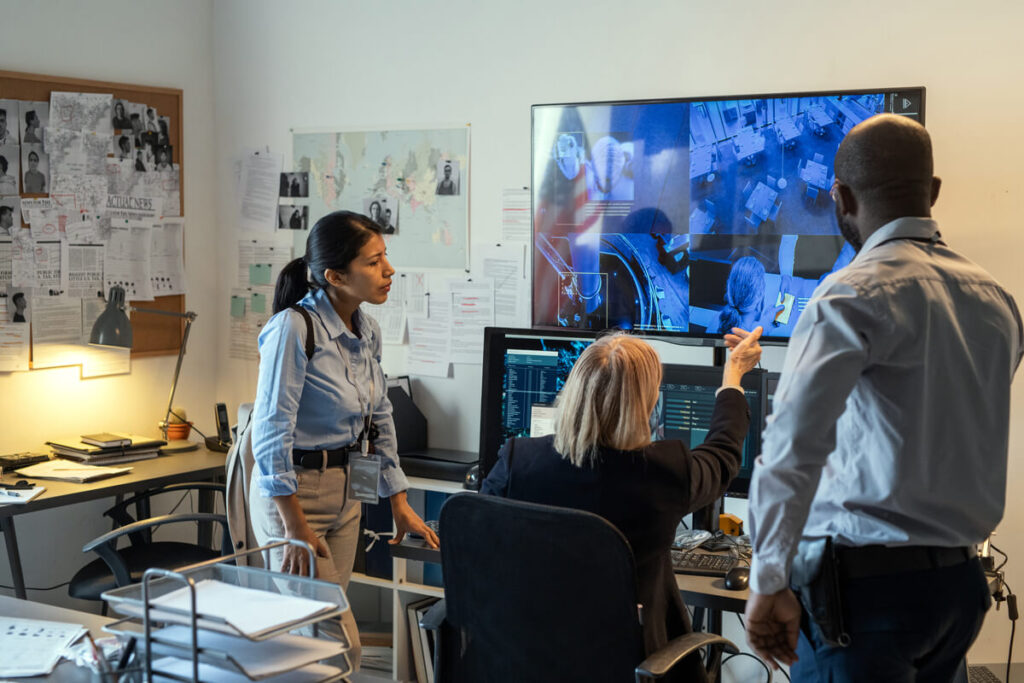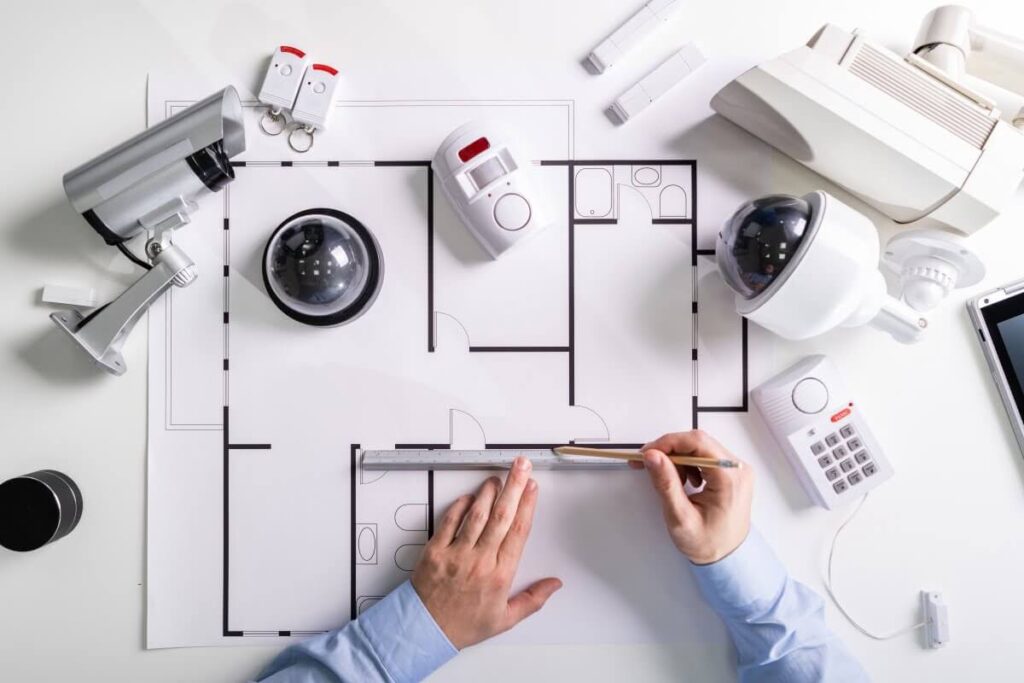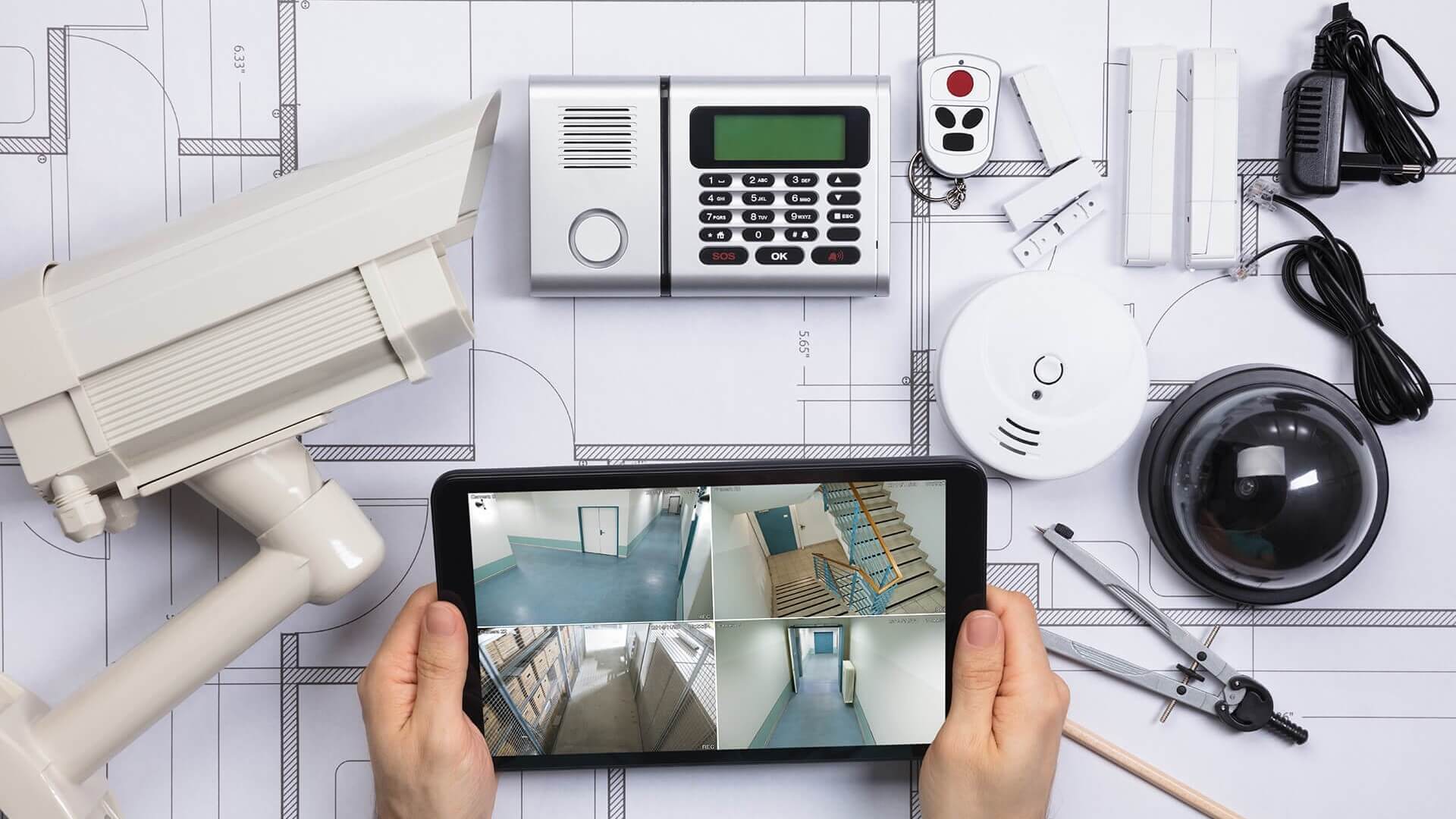Understanding the importance of business security systems
In today’s fast-paced business environment, maintaining a secure workplace is paramount. Business security systems serve as the backbone of a safe working environment, safeguarding not just physical assets, but also the wellbeing of employees and clients. The importance of these systems cannot be overstated, as they offer peace of mind and protection against a range of potential threats.
Security systems do more than just deter potential intruders; they reflect a company’s commitment to safety and professionalism. When clients and employees recognise that a business prioritises security, it enhances trust. This trust is an invaluable asset, often leading to stronger client relationships and improved employee morale.
The role of security systems in modern businesses
With the advancement of technology, business security systems have become incredibly versatile. They now encompass various components including video surveillance, alarm systems, and access controls that work together to provide comprehensive protection. Integrating these systems into daily operations offers an additional layer of safety, allowing businesses to focus on their core activities without the looming fear of security breaches.
Moreover, modern security systems come equipped with smart technology, enabling remote monitoring and management. This means business owners can keep an eye on their premises from anywhere in the world, offering unprecedented control over their security measures. All of this works to ensure that both sensitive information and physical assets are well-guarded.
The potential risks of inadequate security measures
Failure to invest in robust security systems can have dire consequences. From theft to data breaches, the potential risks are substantial. Businesses can suffer financial losses, diminished reputation, and even legal repercussions if sensitive information is compromised. Furthermore, inadequate security can lead to unsafe working conditions, impacting employee productivity and wellbeing.
Statistics show that companies without effective security measures are significantly more likely to experience security incidents. Therefore, investing in a comprehensive security system isn’t just a precaution; it is a necessary aspect of running a successful modern business. Click here to explore the latest commercial security solutions for your workplace.
Exploring different types of business security systems
When it comes to business security, there is no one-size-fits-all solution. It’s essential to understand the various types of systems available to make informed decisions that align with specific business needs.
Surveillance cameras and their benefits
Surveillance cameras have become a staple in business security setups. These systems offer a visual deterrent to potential wrongdoers while providing a means to monitor activities in and around the premises. High-definition cameras can capture clear footage, aiding in investigations if incidents do occur.
Moreover, many modern surveillance systems come with motion detection and night vision capabilities, ensuring round-the-clock monitoring. This not only enhances safety but also helps businesses identify patterns of behaviour that could indicate security risks.

Intrusion detection systems: What you need to know
Intrusion detection systems (IDS) are key tools in identifying unauthorised access attempts. These systems can combine sensors and alarms, alerting security personnel if an intruder is detected. Additionally, modern IDS can utilise artificial intelligence to minimise false alarms and focus on significant threats.
Having an effective IDS is crucial for creating a proactive security posture. By responding to alerts promptly, businesses can address potential threats before they escalate into serious incidents.
Access control systems and their role in business security
Access control systems ensure that only authorised personnel can enter specific areas of a business. These systems can range from traditional lock and key mechanisms to advanced biometric systems that utilise fingerprints or facial recognition technology.
This type of security not only protects sensitive areas but also enables businesses to track who is entering and exiting their premises. Such data can be invaluable in the event of an incident, helping to determine areas of concern for future safety improvements.
The process of selecting the right security system
Selecting a suitable security system requires a careful approach to ensure that your specific needs are met and that your investment is sound.
Assessing your business’s security needs
Before diving into the myriad of security systems available, it’s important to assess the unique security needs of your business. Consider factors such as the size of your premises, the nature of your operations, and any previous security incidents you may have faced.
This assessment should also include input from your team, as they may have valuable insights into specific vulnerabilities or requirements that need addressing. A thorough understanding of your security landscape will guide you in selecting the most appropriate systems.
Evaluating different security system providers
With a clearer sense of your needs, the next step is to evaluate different security system providers. Look for companies that have a strong reputation and extensive experience in the industry. Reading reviews and testimonials, and even seeking recommendations can help you narrow down your options.
It’s also wise to request demonstrations of their products, ensuring that their systems are user-friendly and meet your specified needs.
Making the final decision: Factors to consider
When it comes to making your final decision, there are several key factors to consider. Cost is undoubtedly important, but it should not overshadow other crucial elements such as the quality of the systems, customer support, and compatibility with existing infrastructure.
Moreover, think about future scalability. Your business may grow, and your security needs will likely evolve. Opting for systems that can expand or adapt as your business does is a wise investment in the long run.

Implementing your chosen business security system
Once you have selected the ideal security system for your needs, it’s time for implementation. This phase requires careful planning and execution to ensure that every aspect of the system functions as intended.
Installation process and best practices
The installation of your security system should be carried out by experienced professionals. This not only ensures the correct setup but also maximises the system’s effectiveness. During this phase, it’s crucial to adhere to best practices, such as thorough testing of each component to confirm that everything works as per specifications.
Documenting the installation process and creating user manuals for your team can facilitate smoother operations long after the system is up and running.
Training your team on the new system
Training is often an overlooked aspect of implementing a new security system. Your team must be well-versed in using the system effectively to maximise its potential.
Organise training sessions that cover not only how to operate the equipment but also the importance of adhering to security protocols. Ensuring that everyone understands their responsibilities will greatly enhance the overall security posture of your business.
Regular maintenance and updates for your security system
Finally, regular maintenance and updates are pivotal in keeping your business security system effective. Schedule routine checks and updates to software and hardware as needed. Many security system providers offer maintenance plans tailored to ensure that your system is always in top shape.
Investing time and resources into maintaining your security systems can significantly reduce future risks, making your business a safer place for everyone involved.
